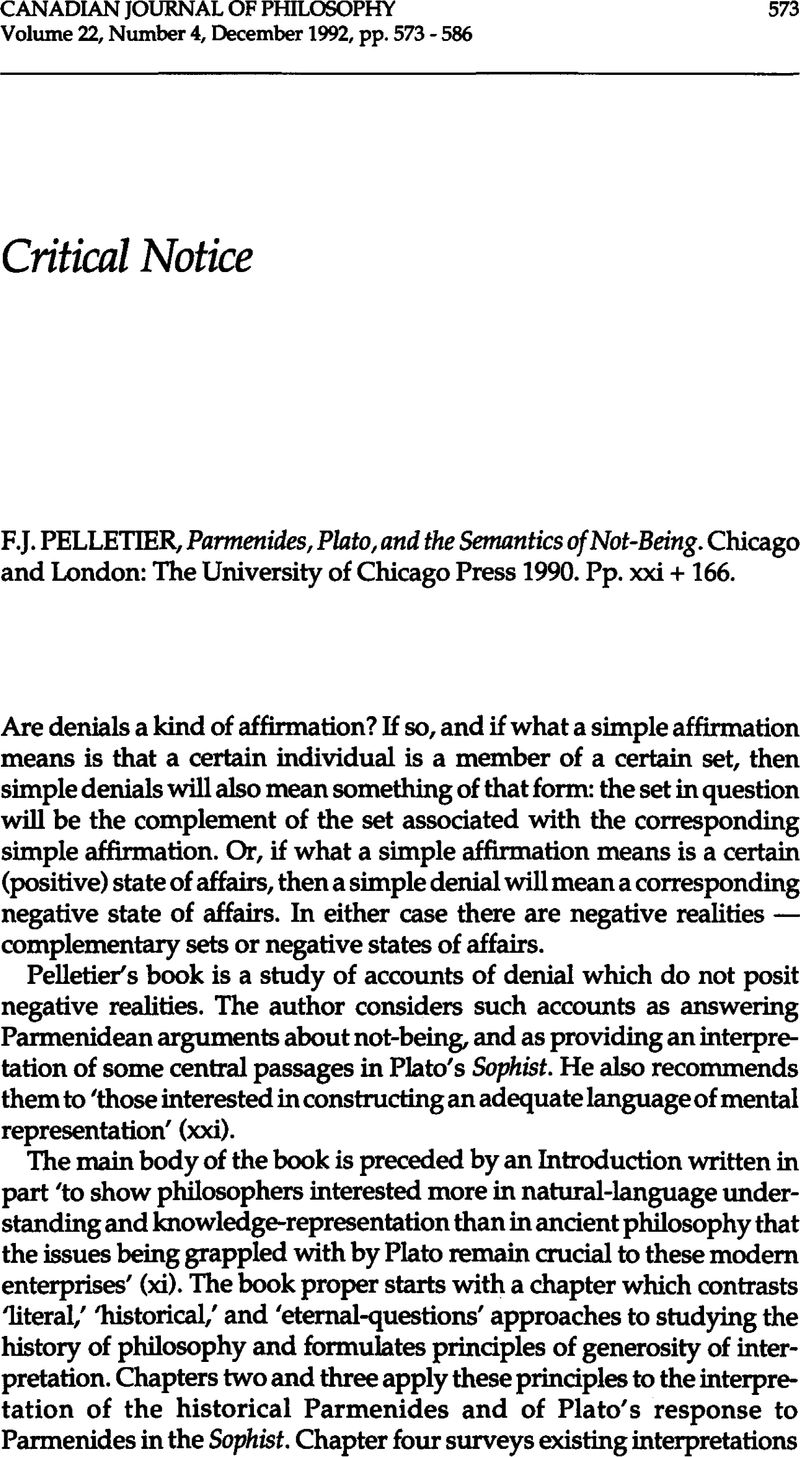No CrossRef data available.
Article contents
Critical Notice - F.J. Pelletier Parmenides, Plato, and the Semantics of Not-Being. Chicago and London: The University of Chicago Press 1990. Pp. xxi + 166.
Review products
Published online by Cambridge University Press: 01 January 2020
Abstract

- Type
- Book Reviews
- Information
- Copyright
- Copyright © The Authors 1992
References
1 By p. 20 this has become, ‘Every declarative sentence either ts the case or its negation is the case, but not both’ (my italics).
2 Unstated assumption: a sentence has meaning only if the names and predicates in it have meaning.
3 Compare Pelletier, p. 19. Notice that without 3.1 the Language of Enquiry would only have been proved not to contain denials. It might, for all that, contain two different affirmations; and, though their being different might perhaps be shown, it could not be said, in the Language. Now, while it seems legitimate to demand of the Language of Enquiry that all facts be able to be gleaned from it, it is not self-evident that they should all be statable in it: wouldn’t it be satisfactory if some fact could only be shown by the Language? If so, Pelletier’s 3 is too strong and his argument fails.
4 242d, Cornford translation
5 255c-d. Cf. Pelletier’s unsatisfactory treatment of this passage on 123-4.
6 The first of these proposals is based on some remarks by Owen; the second on a suggestion by Furth. See 88-90.
7 Parmenides BI .29. Translation by Barnes in Barnes, Jonathan Early Greek Philosophy (New York: Penguin 1987), 131Google Scholar.
8 For injunctions against talking of what is not, see B2.5-6, B6.3, B7.1-2; for references to ‘enquiry,’ B2.2, B6.3.
9 See Thorn, Paul ‘Metaphysics II — Greek Metaphsyics’ in Handbook of Metaphysics and Ontology 2 vols., Smith, Barry and Burkhardt, Hans eds. (Munich: Philosophia 1991), 532.Google Scholar
10 B2.7-8,B3
11 Parmenides 142b-c
12 Parmenides 130c-d


